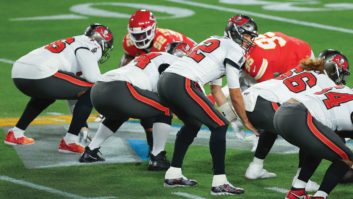Yesterday, Amazon reached a market valuation of $1 trillion for the first time. It is now the second company to achieve the heady figure after Apple reached the same height in early August. (Amazon has since dropped back, ending the trading session at roughly $995 billion.)
According to Tom Harrington, senior research analyst at Enders Analysis, the fact that Apple and Amazon have achieved such dizzy stock market heights means they are now the two organisations with the greatest potential, especially in terms of increasing their spend on content.
“As it currently stands in terms of what Amazon’s doing, they at least outwardly consider original content to be sort of a loss leader,” Harrington told TVBEurope. “They think customers will pay to use Prime and then once they have Prime they’ll spend more money, that’s the current model that they have.
“Content to them is not a volume game, they say they want to win awards. But it wouldn’t take much for them to change the direction of their strategy around that. They’ve never really had a hit. The acquisition of Lord of the Rings is their attempt to basically buy a hit. There’s nothing that’s transcended the platform yet,” continued Harrington.
If Amazon and Apple have more money to spend on content, what will that mean for Public Service Broadcasters and pay-TV operators?
“Amazon and Apple are international companies, so the money they spend is for international reach of their programmes, whereas a broadcaster such as the BBC or Channel 4 is limited by the fact that they are domestic broadcasters. They can’t compete in terms of scale,” said Harrington.
“If you’re the BBC you’re also reliant on the licence fee which might go up or may cease to exist. That means you have a fixed amount to spend on content every year. The BBC and other PSBs have the added stress that the price of content is going up so that makes it even harder. That means that some of the FAANGs are able to slice off some of the really premium stuff.”
Finally, does Harrington think Amazon or Apple could use their wealth to invest in technology and the way viewers watch TV? “Well I guess they’re already doing that,” he said.
“Someone like Netflix has been incredibly successful because they’ve had access to other people’s content and they were able to create a library that was very desirable to a lot of people. In terms of recommendation, algorithms and putting the shows that the viewer wants to watch in front of them, Netflix is world-leading. Technology has been a big driver behind that.”







